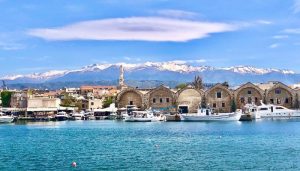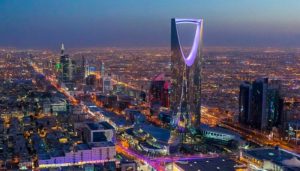
Next month, 600 artisans, including couturiers, spirit-makers, and neon-sign merchants, will open their ateliers to showcase their traditional trades
Walking into the Brûlerie de Belleville in Paris’s 19th arrondissement is akin to entering a vintage apothecary. The ambiance is defined by towering dark wooden shelves stocked with glass jars and tins of freshly roasted coffee beans. A wide array of coffee-making equipment adorns the walls, and the bar counters are resplendent with wine-colored marble, where you can relish a freshly brewed espresso.
As one of Paris’s long-standing purveyors of quality coffee, the Brûlerie participates in ParisLocal, a three-day festival held in November, dedicated to showcasing local, environmentally-conscious businesses and artisans.
I kick off my day exploring the city’s workshops and engaging with its skilled artisans, all while being energized by a caffeine fix. Ludovic Gossart, a cheerful barista with a neatly trimmed Wes Anderson-style mustache, donning green postman shorts and a matching cap, inquires about my usual coffee preferences (supermarket Lavazza), my chosen brewing method (an Italian moka pot), and my coffee preferences (to which I am at a loss for an answer). His approach is akin to a doctor conducting a diagnostic consultation.
Next, he proceeds to meticulously weigh and grind the coffee beans before placing the grounds in a ceramic Japanese filter. With a delicate touch, he gently pours hot water over the grounds in a circular motion. The resulting brew, served in transparent glasses, exhibits a rich, dark caramel hue, reminiscent of translucent tea.
Throughout this process, he passionately shares a condensed coffee history, covering the global market, worldwide production, and consumption trends. His delivery is spirited and enthusiastic, reflecting his deep love for coffee. Although it may appear frenetic, there’s something infectious about his devotion to coffee. The moment I take a sip, savoring its velvety, pure, and almost fruity undertones, I find myself converted to the cause.
Once you immerse yourself in the world of coffee, you won’t be satisfied with ordinary coffee anymore!” he exclaims cheerfully, noting the astonishment on my face. In the adjacent conservatory, coffee beans are undergoing the roasting process, filling the shop with an earthy aroma reminiscent of a bonfire, toasting bread, and caramelizing fruit.
While I’m tempted to linger and savor more coffee varieties, it’s time to move on to my next destination on the schedule: a visit to the workshop of neon artist Alexis Dandréis.
Though neon typically conjures images of the dazzling lights of Las Vegas or the neon glow of Tokyo, it has a distinct Parisian heritage. French engineer Georges Claude introduced neon commercially in the early 20th century. Interestingly, there are only a handful of néonistes who continue to employ the traditional method, as opposed to the now more prevalent use of LED lighting.
It’s a fading profession,” Dandréis informs me. “Neon embodies true craftsmanship, in contrast to easily disposable mass-produced LEDs.” He proceeds to ignite a colossal blowtorch, causing the air to quiver until the flame transforms into a vibrant blue roar. Subsequently, he immerses a glass tube into the liquid heat, slowly rotating it until it reaches the ideal temperature. With a graceful movement, he bends it into a flawless U shape. Upon returning it to his desk, the wooden surface bears a slight singe, with a delicate wisp of smoke ascending like a musical note.
“What I practice is a blend of creativity and substantial technical expertise,” he explains, emphasizing the intricate designs he crafts for artists and interior design clientele. Visitors to the November festival can witness live glass-molding demonstrations throughout the day and even participate in introductory workshops to experience the art form themselves
From November 17th to 19th, approximately 600 artisans in the greater Paris area are welcoming inquisitive individuals interested in exploring the enduring practice of various crafts. One of these artisans is Johanna Braitbart, who has dedicated 25 years to fashion accessory craftsmanship in Paris. Within her cozy studio located in the Marais district, her table, positioned by the window, is a bustling tableau of pins, fabric swatches, threads, beads, scissors, and measuring tapes.
Over the course of her career, she has witnessed the migration of small artisans from central Paris due to escalating rents and the transformation of traditional business districts through gentrification. Many couturiers have either been acquired by prominent fashion labels or pushed out by them. For Braitbart, ParisLocal presents a cherished opportunity to redirect attention towards small-scale artisans.



